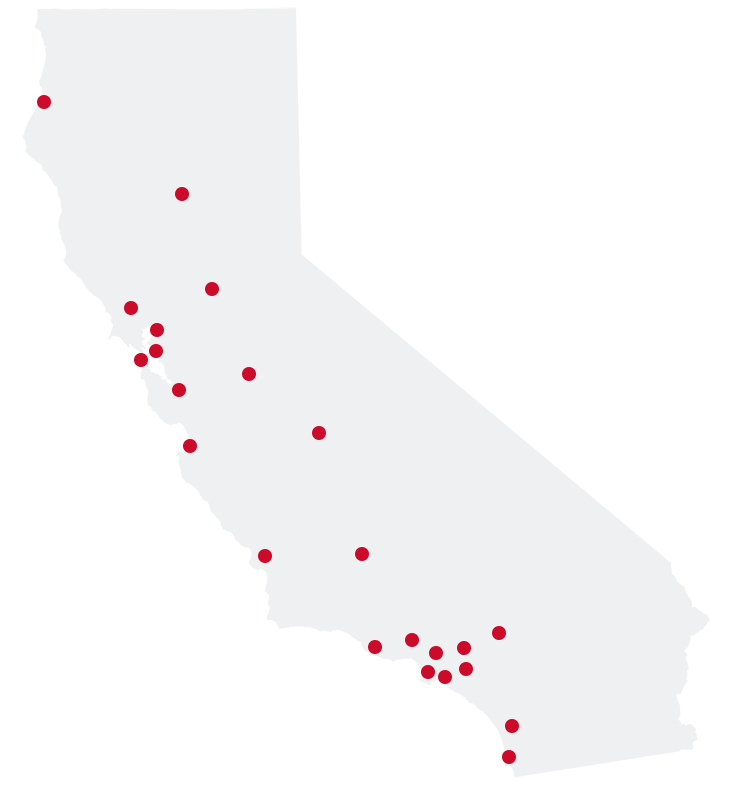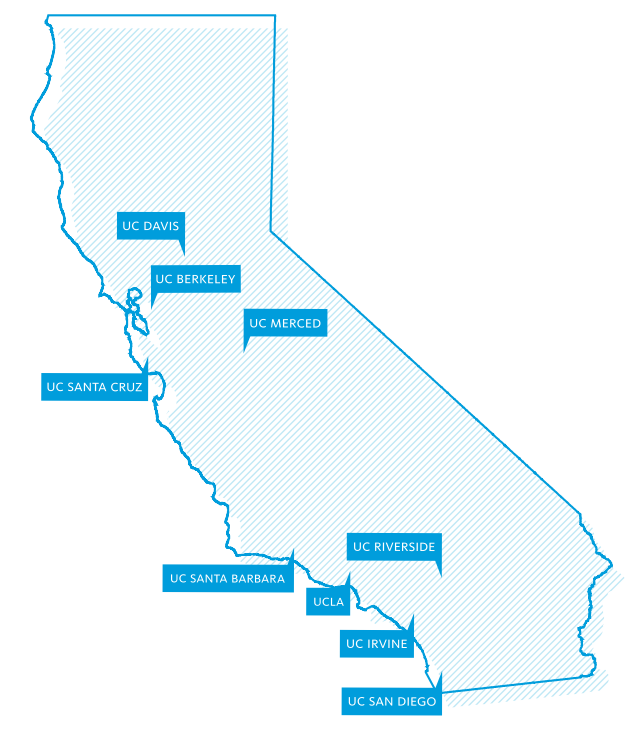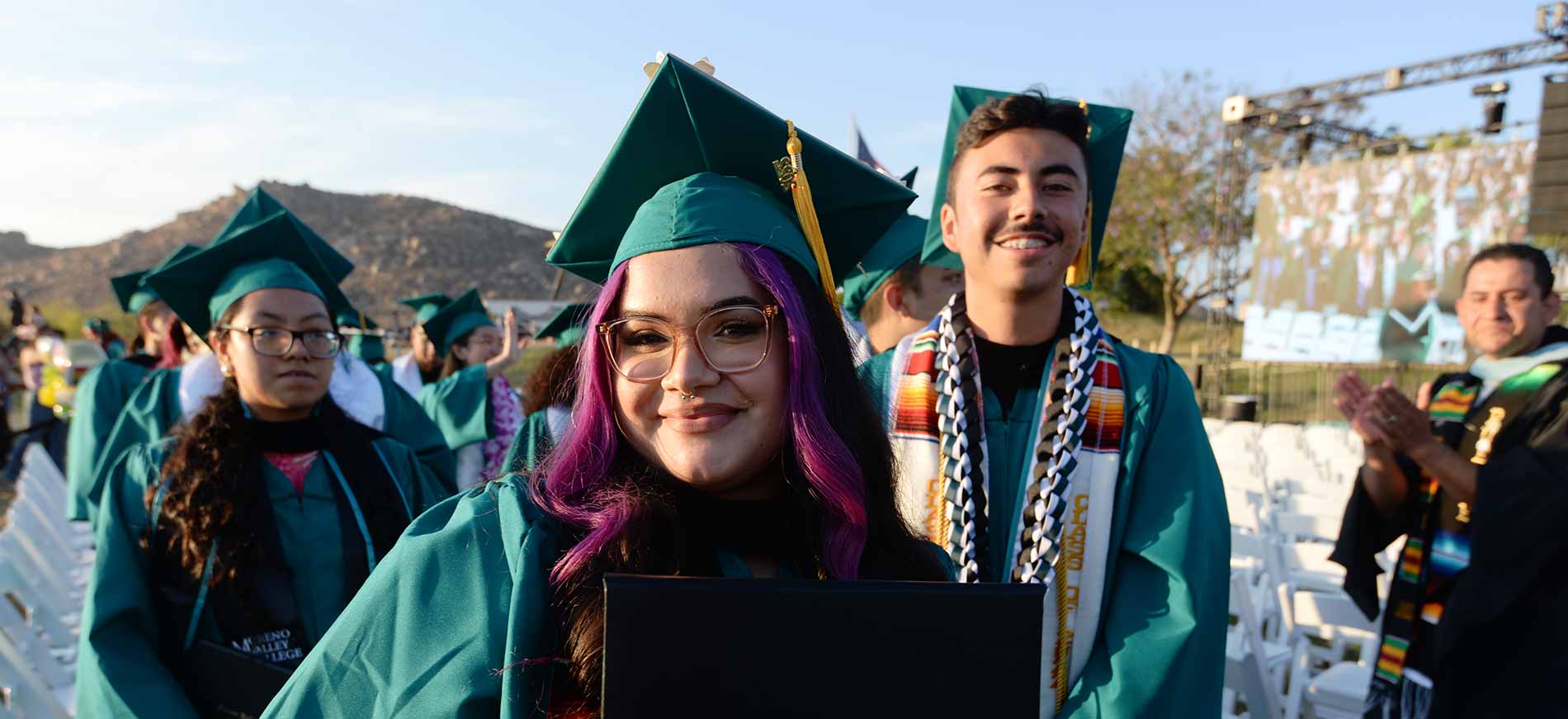Transfer Services
Go even further in higher education
Transfer is the process of continuing your education at a four-year college or university after completing courses at another school. If planned correctly, the courses you complete at Moreno Valley College will count towards requirements for your bachelor's degree just as if you'd taken them at your four-year school.
How We Can Help
- Find the schools that fit your academic goals and meet their transfer requirements with the help of your transfer counselor.
- Pursue an Associate Degrees for Transfer to guarantee admission to a California State University.
- Benefit from special California Community College agreements with California State Universities, Universities of California, private universities, and Historically Black Colleges and Universities.
Reach Out
For assistance with transfer-related questions and academic counseling, contact your Transfer Coordinator.
Dean Steckman
Assistant Professor, Counseling
Transfer Coordinator
- Call: (951) 571-6246
- Email: dean.steckman@mvc.edu
Transfer Workshops
Employment Resources Workshop
University Visit: University of Redlands Admissions Advising
University Visit: CSU Fullerton Admissions Advising
Choosing a Major
A major is your four-year specialization that often directly matches with your future career choice. At MVC, you complete a program of study that leads into further study for your major.
- MyMajors.com: A tool to help you find the best major for you based on your interests.
- What can I do with a major in...?
Completing Your General Education
General education, also known as Gen Ed or GE, broadens a student's knowledge and includes topics such as literature, history, philosophy, English, and basic mathematics and science. General education courses are typically completed in the first two years of college and serve as the foundation for a degree.
As a transfer student, you'll complete these classes at MVC and your time at a four-year university will be primarily used to focus on topics specific to your chosen major.
General education patterns like the CalGETC are specific lists of transfer-approved courses that address basic learning requirements in a given area. By following an institution's general education requirements, students can increase their chances of admission. Private institutions may have different transfer requirements than CSUs and UCs, while specific programs at any university may have additional admission requirements.
California General Education Transfer Curriculum (CalGETC) is the course pattern that satisfies lower-division general education transfer requirements for both the CSU and UC systems.
The CalGETC replaced both the IGETC and CSUGE patterns in 2025.
The Transfer Process
There are four basic transfer areas that students will focus on prior to transfer:
- General Education Requirements
- Preparation for Major Courses
- Minimum Required Transferable Units
- Minimum Required GPA
Specific requirements vary depending on the college/university and major.
There are three important decisions you need to make in order to choose the right courses to prepare you for transfer:
- Your career objective, which determines the type of degree you need and your choices for selecting a major.
- Your major, which is the field of study you will emphasize at the university (your major at the university might be different than your major at community college).
- Your transfer university.
It's best to begin exploring your options for each of these decisions while you also begin taking the most common courses required for transfer.
If you are not already a student at Moreno Valley College, first apply and enroll.
If you are already a student at MVC, prepare for transfer by:
- Ensuring official transcripts from all previously attended institutions have been sent to MVC, including Advanced Placement and International Baccalaureate scores.
- Request to have your previous transcripts evaluated by the evaluations officer.
- Meet with an academic counselor to discuss your options and your best path to transfer. Then, enroll in the courses you decide on during your meeting with your counselor.
A major is a field of study that you emphasize in your college education. It is what you "specialize" in with your degree. It’s important to remember that your major is what you will study at the university you transfer to. At Moreno Valley College, you can prepare to transfer into virtually any major at any university—there are literally thousands to choose from.
Most students attend college because they believe it will lead them to better employment. Since careers are related to employment, simple logic suggests that if you are attending college to obtain better employment, there should be a relationship between majors and careers. While it's true that some majors, do relate to specific careers, most majors do not. In fact, the majority of majors will actually help prepare you for many career possibilities.
To narrow down the options, students often begin to select their major by one of the following techniques:
- If you have an idea of the career field you want to enter, you can find majors that are related to, or prepare for, that career field. Majors and career fields are not always "perfectly matched." However, knowing your intended career field can help narrow your options. You can visit the Counseling Office or Career Center for assistance in researching career fields.
- If you know what university you want to attend, you can select from the list of majors at that university. Lists of majors at California public universities are available at www.assist.org (click on "Explore Majors")
- If you think you might be interested in a particular major but are not sure, try taking a general education class in the major and see how you like it. Students often select their major based simply on the courses that are the most interesting to them.
Many occupations today require a college educated individual who can write and speak well, solve problems, learn new information quickly and work well in teams. This means that college graduates use their education in a wide variety of fields, and your future career may relate more to your personal career interests, work values and transferable skills than any specific academic major.
- Non-Vocationally Specific: The non-specific major is not oriented toward employment in a specific career or a particular field. When combined with related experience and internships, such a program results in a career-oriented degree. Some good examples are history, political science, and sociology. For some, these types of majors are preparation for advanced training, either on the job or in graduate school.
- Vocationally Oriented: Vocationally oriented majors are aimed at a specific field of employment but not at a particular job. With this major, you'll be ready for entry employment at a trainee level.
- Vocationally Ready: The vocationally ready major involves specific preparation for a particular job or occupation. Often times these programs are designed to meet the educational requirements of licensure or certification in a profession.
It is important to investigate transfer universities early in the transfer planning process. This is because each university typically has different transfer requirements, including different sets of courses you should complete prior to transfer. Students who do not select a transfer university early often complete many more courses than necessary.
Choosing a transfer university is also important because:
- The majors offered at each university are different.
- Each university has unique features, including factors like its student body, its location, and its extracurricular activities.
- You are more likely to do well academically in a university environment that you enjoy.
We recommended selecting at least three universities that interest you. Your first choice university should be the university you would choose to attend if you knew for sure that you would be admitted. Your second choice university should be a university you would be happy attending and where you feel you have a good chance of being admitted. Your third choice university should be a university you would be happy attending and where you believe you would definitely be admitted. (This is a "safety net" choice in case for some reason you are not admitted to your other two choices).
Once you have decided what major you plan to pursue and your transfer university, the next step is to plan out your transfer courses and create an Educational Plan. An education plan is a pattern of courses you take at community college that prepares you to transfer to a university in a specific major. It usually includes:
- General Education, which are courses from a variety of disciplines that help you develop a well-rounded education.
- Minimum transferable units, which is typically 60 semester units for public schools and varies for private institutions (additional courses may be necessary to meet the overall units required to transfer, be aware that not all courses may be transferable).
- GPA: most schools require a minimum overall GPA with additional major requirements depending on impaction.
- Preparation for Major courses, which are courses you take to prepare to study your major at the university.
- Electives, which are additional courses taken to meet the number of units required to transfer or earn a degree.
An educational plan serves as a crucial step in the transfer process ensuring that you are completing the necessary courses to be eligible for admission at your transfer university and determining a realistic timeline to transfer. Transfer students are encouraged to make an appointment with a counselor to develop an educational plan early in the transfer process. You can also schedule an appointment to meet with an university representative in the Transfer Center. Contact the Transfer Center as to who is coming to the college.
California State University
The CSU system is made up of 23 campuses across the state of California and educates nearly half a million students per year.
CSU Transfer Overview
- Students must complete the CalGETC general education pattern requirements. Some programs may not accept these requirements as fulfilling minimum standards.
- Complete 60 CSU-transferable units, 39 of which address general education requirements.
- Have a minimum GPA of 2.0 (2.4 for nonresident and international students)
- All CSU campuses accept Associate Degrees for Transfer, though an AD-T does not guarantee you a choice in transfer school.

University of California
The UC system has 10 Campuses throughout California, nine of which offer undergraduate and transfer education.
UC Transfer Overview
- Students must complete CalGETC general education requirements, though some majors and programs require additional coursework.
- Earn 60 semester units or 90 quarter units in UC-transferable courses.
- Have a transferable GPA of 2.4 (or 2.8 for nonresident or international students).
- Some campuses participate in the UC-TAG (Transfer Admission Guarantee) program, which offers guaranteed admission to California community college students who meet specific requirements.

California Private Universities
Many California Independent Colleges and Universities accept completed CalGETC coursework for transfer admission. However, some independent schools have substitute, additional, or specialized course requirements for admission.
Learn about attending private universities
Historically Black Colleges and Universities (HBCU)
Historically black colleges and universities have an excellent academic track record. While only about 17 percent of black undergraduate students attend a historically black college and university, over 28 percent of African-Americans who receive bachelor's degrees obtain them from a historically black college or university. These colleges and universities are also leading institutions in awarding bachelor's degrees to black students in the life sciences, physical sciences, mathematics and engineering.
California community college students who complete certain academic requirements are now guaranteed transfer to one of 39 historically black college and university campus participating in a system-wide transfer agreement.
Transfer Timeline
- July 16 - October 15: Apply for Associate Degree for Transfer (ADT) if you are planning to transfer to a CSU in spring
- August 1: UC Admission Application opens up
- September 1 - 30: Apply for UC Transfer Admission Guarantee (TAG)
- September 26: Attend MVC Transfer Fair
- October 1 - November 30: Apply for CSU Admission if you are planning to transfer in fall
- October 1: Apply for FAFSA/Dream Act for next academic year
- November 1 - 30: Apply for UC Admission
- January 1 - February 15: Apply for Associate Degree for Transfer (ADT) if you are planning to transfer to a CSU in fall
- March 30: Check e-mail for important university notifications
- First day of spring term through April 1: Apply for MVC graduation
- March 2: FAFSA/Dream Act priority filling deadline for Cal grant
- May: Attend MVC Transfer Achievement Ceremony
University Summer Programs
- UCLA CCCP Summer Programs
- INSPIRE at UC Irvine is a Summer Program to Inspire, Recruit, and Engage Community College Students in Engineering and Computing
- Experience Berkeley Transfer Program
- UCR STEM Pathway Summer Bridge
Resources
